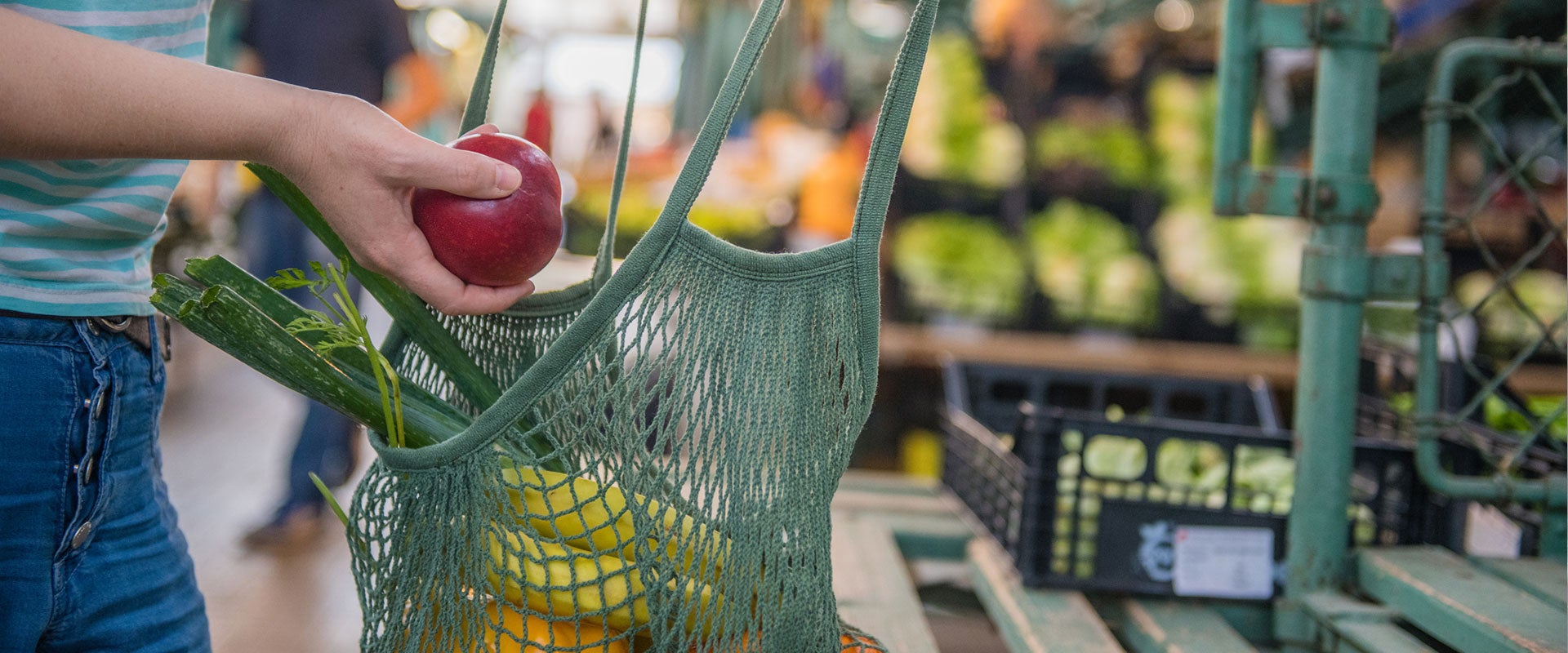Geography has an impact, too, and we found that for more than 60% of consumers in France, Germany and the US, ‘locally sourced’ labels are a major proof point of sustainability for F&B products, while a similar percentage of consumers in Brazil, India and China plump for ‘organic’ labels as their key sustainability indicator.
Statistics like these combine to highlight how crucial it is for sustainable brands to take a regional approach.
What does the shift towards sustainability mean for F&B businesses and brands?
The rise of sustainability has major implications for any business or brand in the F&B sector. Understanding how to interpret and act on the trends is key. We have listed our top five implications below, but with every company, category and market being unique, we are always ready to discuss in detail the sustainability strategy that’s right for your business.
1. Keep expanding sustainable product offerings
Sustainability isn’t going away. Recent setbacks in alternative meat growth and a slowdown in organic food adoption should not overshadow the rapid evolution of consumer dietary habits. Across geographies, consumers are choosing less meat, fewer ultra-processed foods, and more organic and locally sourced produce. Health is a priority, and healthier and more sustainable alternatives to staple foods remain on-trend and heavily sought after, particularly by younger consumer cohorts.
2. Use packaging to deliver straightforward and impactful sustainability messages
Packaging is a crucial tool for conveying sustainability to consumers and should be a key focus in the marketing mix. Pay particular attention to high-impact labels and clear messaging to cut through the confusing array of sustainability claims, stand out in crowded marketplaces and build trust with consumers. Ensure you know what your consumers are looking for and that your packaging prominently features the most influential sustainability labels.
3. Be prepared to tailor your approach
Consumers in different geographies and from different demographics prioritise different sustainability factors. Customise marketing messages and sourcing strategies to reflect regional preferences – e.g. ‘locally sourced’ in developed countries versus ‘organic’ in developing regions. Taking a targeted approach lets you resonate more effectively with regional consumer preferences and drive higher engagement and satisfaction among diverse market segments.
4. Deliver smart value and affordable sustainability
Cost matters, and consumers are willing to pay only a moderate premium for sustainable products. This makes optimising costs and considering product re-engineering focused on key sustainability attributes crucial. Additionally, developing affordable sustainable options will allow those impacted by inflation and reduced disposable income to continue consuming responsibly. Upcycling food waste into new products, using eco-friendly packaging, implementing energy-efficient production technologies, forming sustainable sourcing partnerships and offering subscription models for reusable containers can all contribute to delivering smart value while maintaining affordability.
5. Facilitate sustainable practices
The onus is on F&B companies to embrace and support consumer shifts towards sustainability by simplifying sustainable actions. Changes to consider include implementing user-friendly packaging and clear educational initiatives to guide consumers on reducing waste and recycling effectively. This approach has the potential to strengthen brand reputation and promote a lasting culture of sustainability among both consumers and employees.
How L.E.K. can help you make sustainability part of your F&B strategy
Our insights and data paint a compelling picture of evolving consumer sustainability preferences. Health and environmental concerns combine to make this particularly relevant to the global F&B sector. Staying in touch with consumer sentiment and developing products that reflect changing needs are vital for every F&B business and brand. Our specialist teams help companies across the consumer landscape develop the strategies they need to preserve and grow their businesses. To find out more about our work, please contact us.
L.E.K. Consulting is a registered trademark of L.E.K. Consulting. All other products and brands mentioned in this document are properties of their respective owners. © 2024 L.E.K. Consulting











